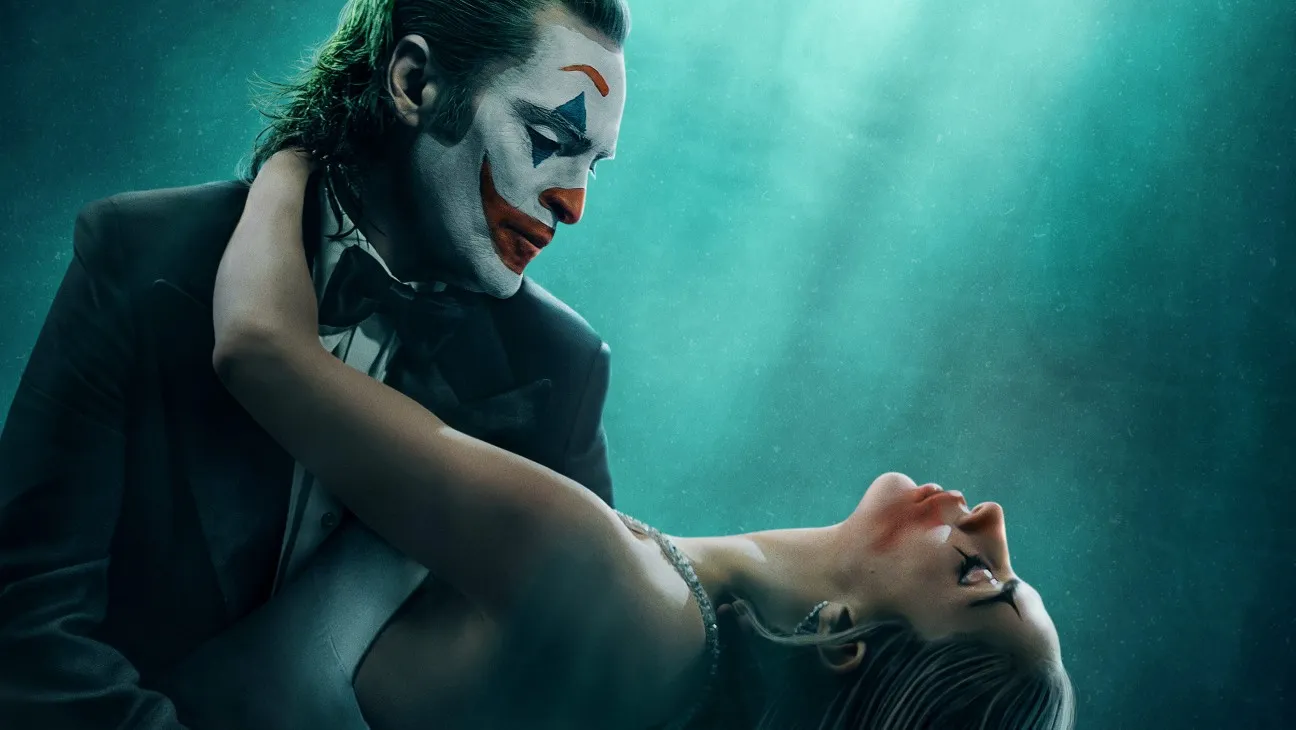Film Review: Joker: Folie à Deux
Film
Joker: Folie à Deux
Director: Todd Phillips
Domain Entertainment and DC Studios
In Theaters: 10.04
The 2019 dark drama Joker is far from a personal favorite, and one reason for that is it’s so focused on being a mashup of two Martin Scorsese classics, Taxi Driver and The King of Comedy, that it feels more like a gimmicky experiment than it does a movie. Still, that did at least give it a clear focus and vision, something that the sequel, Joker: Folie à Deux, is sorely lacking.
Joker: Folie à Deux picks up with Arthur Fleck (Joaquin Phoenix, Walk the Line, Napoleon) in Arkham Asylum, two years after the series of murders he committed—one on live television—made him into a folk hero, inciting riots throughout Gotham City. Institutionalized at Arkham Asylum, Arthur is kept medicated and is emaciated even beyond what he was in the first movie. The closest thing he has to a friend is a guard, Jackie Sullivan (Brendan Gleeson, The Banshees of Inisherin, The Tragedy of MacBeth), who treats Arthur a like a pet that is there for his amusement. As Arthur’s high profile trial looms, Maryanne Stewart (Catherine Keener, Being John Malkovich, Capote) favors an insanity defense built around the argument that Arthur has dissociative identity disorder, and that “Joker” is responsible for crimes, not Arthur Fleck. While he goes along with it, Arthur is still processing what he believes, and when he meets Lee Quinzel (Lady Gaga, A Star Is Born, House of Gucci) in a music therapy group, his world changes as the obsessively adoring Lee gives him a sense of validation. This new experience for Arthur plays out as a musical fantasy as he idealizes the love affair.
When Joker became a huge hit and won Phoenix an Oscar, a sequel became inevitable, but the Scorsese homage in Batman-world was barely enough of an idea for one movie, and writer-director Todd Phillips had to try to come up with a fresh idea this time around. While Folie à Deux—a term for a delusion or mental illness shared by two people in close association— borrows from multiple sources, whether it’s an overdone visual reference to One Flew Over The Cuckoo’s Nest or a general feel that it’s occasionally guiding off of both Moulin Rouge! and Chicago, it doesn’t have a template to follow, and Phillips seems completely lost without one. This gruelingly slow and aimless film feels far longer than its already excessive 138-minute runtime, and the plot is kept thin in order to allow for frequent musical numbers that become increasingly unwelcome and ludicrously self-indulgent. It’s also full of contradictions and plot holes, with Arkham portrayed like a Shawshank-style maximum security prison, yet the violent criminals don’t seem noticeably isolated from regular patients, and none of the slapdash excuses for why Arthur able to meet Lee in the first place, let alone how they can gain easy access to each other, hold up under basic scrutiny. Where the first film was deliberate and carefully designed to make the elements come together, this is about as organized as a tub of live bait. The majority of the film feels like padding, and what little it does have to say is often troubling and uncomfortably misogynistic. I don’t think that Phillips has by any means set out to make the statement that Arthur has ended up where he is because women as a whole tend to be cruel, self-serving manipulators, yet the chosen approach to the Harley Quinn/Joker dynamic, as well as the dark details of Arthur’s emotional baggage from an abusive relationship with his mother, end up leaving it so strongly open to this interpretation that the toxic incel (involuntary celibate) subculture couldn’t get a movie that reinforced their views more effectively if they made it themselves.
Phoenix is certainly committed to his performance, but the luster has worn off, and the character feels more artificial this time. It’s also more than a little problematic that so much of the film is centered around solo songs that are grating to listen to and bizarrely embarrassing. While Phoenix managed to pull off the role of Johnny Cash in Walk The Line, that only worked because Cash’s speak-sing style was all about the intent and power brought to it, rather than melody and polish. There’s no mistaking the fact that Phoenix isn’t even matching the level of skill and vocal training you expect to hear at a dive bar karaoke, though he throws himself into them with gusto. Some argue that the choice to let him sing out strong with this raw voice yet plenty of emotional intensity works for the character and the story, yetGaga deliberately fakes a lack of polish and finesse when she sings outside the fantasy sequences, only to become her powerhouse self with the fantasy sequences kick into high gear. In their shared idealistic fantasy, Arthur still isn’t even passably competent to sing as part of a chorus. The supporting cast is all competent, yet there isn’t a single one of them that wouldn’t be better off in a different film.
Joker: Folie à Deux is an unmitigated disaster that not only isn’t going to leave anyone wanting more, it irrevocably takes the luster off its seriously flawed yet strangely interesting predecessor. Anyone who was hoping for an Oscar-caliber follow up is in for a rude awakening, as they go in hoping for Godfather and simply get godawful. –Patrick Gibbs
Read more film reviews:
Film Review: White Bird
Film Review: Megalopolis

